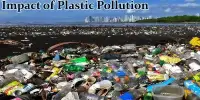Environmental degradation is the breakdown of the earth or deterioration of the environment caused by the consumption of assets such as air, water, and soil; the destruction of habitats; and the extinction of species. It is defined as any alteration or aggravation to nature’s turf that is deemed harmful or unwanted.
Environmental degradation is defined as the deterioration of the environmental system as a result of human involvement. Degradation of the environment can have catastrophic consequences for many creatures, plants, and humans. As a result, in order to avoid these negative repercussions, we should implement several steps in our daily lives.
Solutions to Environmental Degradation
(1) Stop Deforestation
Stopping deforestation is critical for our environmental system in order to reduce the negative effects of environmental degradation. We cannot afford to chop or burn down our trees because they store greenhouse gases and create oxygen. We cannot afford to chop or burn down trees because they store greenhouse gases, create oxygen, and provide a natural habitat for many animals and plants that will become endangered if these forests are destroyed.
In the interest of environmental protection, a large-scale afforestation program should be initiated. We can make an even bigger difference by replanting or afforestation. Furthermore, forests provide a natural habitat for a variety of animals and plants, which may become endangered if these forests are destroyed. Therefore, stopping deforestation is crucial for our environmental system.
(2) Government Regulations
Governments must intervene and establish a framework whenever there are issues that result in serious environmental degradation. Governments levy hefty taxes on activities that threaten our planet and provide financial incentives for ecologically favorable conduct.
These will also compel corporations and individuals to refrain from practices that contribute to environmental damage.
(3) Fines and Punishment for Illegal dumping
To mitigate the negative ecological repercussions of illegal dumping, hefty fines should be imposed. People and businesses will continue to dump rubbish illegally since they know the consequences are minimal even if they are caught. Raising the sanctions for unauthorized dumping would thereby boost the incentive to dispose of rubbish at authorized waste disposal locations.
(4) Reduce Consumption Levels
It has become imperative that we cut our consumption levels. Our sophisticated civilization is always looking for the latest technologies, smartphones, and trendy outfits, among other things. However, this tendency results in massive resource depletion and waste production. To avoid the negative environmental implications, we must drastically reduce our consumption levels.
(5) Reuse and Reduce Waste Generation
You may reduce waste output by making better use of your things and food. If you want to get rid of outdated but still functional items, be creative in giving them a new look or repurposing them. Your material possessions will be utilised more effectively as a result. If they can no longer be used, separate them and donate them to recycling.
(6) Avoid Plastic
Plastic waste is a major environmental issue that contributes to considerable plastic pollution and the destruction of our world. To reduce plastic waste, avoid purchasing things with plastic wrapping or packing, and avoid using throwaway plastic bags, cups, plates, containers, silverware, and so on. Bring your own reusable items that can be reused multiple times instead.
(7) Education
It is critical that children understand the negative environmental repercussions of our daily lives and how we can reduce our environmental impact. This education should begin in primary school. In comparison to adults, children are usually more ready to learn new things and adjust their behavior.
These children are more likely to act in an environmentally-friendly manner when they grow up, and they might also convince their parents to behave in a more ecologically friendly way.
















